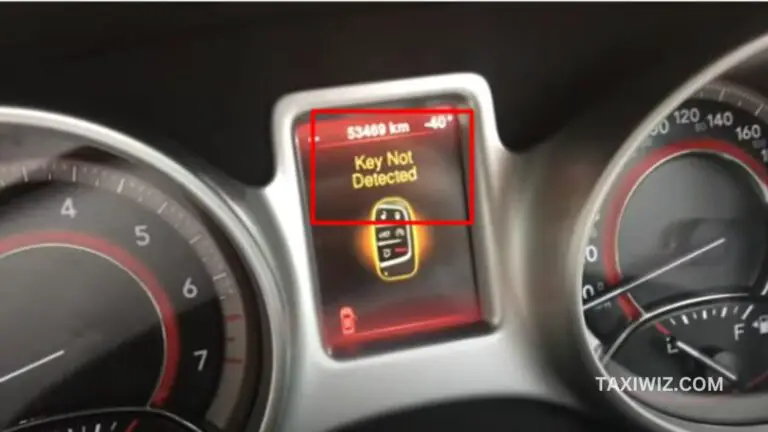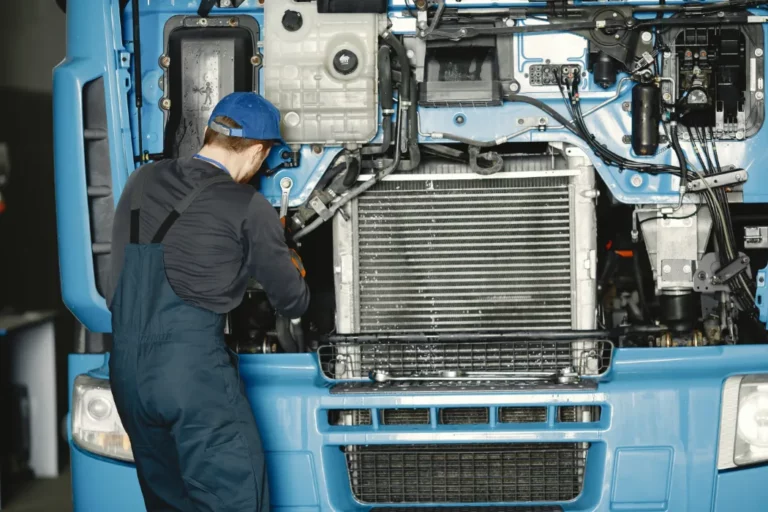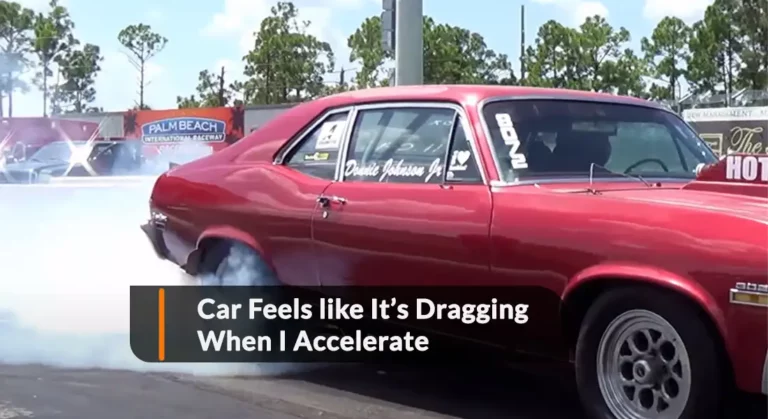Common Reasons Car Won’t Accelerate Past 40
Sometimes you’ll see that your car won’t accelerate past 40, but no check engine light is on. I know how confusing it can be.
Now, there are many potential reasons behind that such as fuel delivery insufficiency, transmission troubles, air filter obstructions, and more.
Here, you will find the top 15 reasons that might lead to your car not accelerating past 40 and what to do if the situation arises.
| Reason | Solution |
| Clogged Air Filter | Replace the air filter if it is dirty or obstructed |
| Fuel Delivery Problems | Consult a professional mechanic to test and replace the fuel filter or fuel pump if insufficient fuel pressure is found |
| Ignition System Malfunction | Have a qualified mechanic replace faulty ignition components like spark plugs, ignition coils, or the control module |
| Transmission Issues | Seek assistance from a professional mechanic for diagnostic testing and repairs, including a possible fluid change. |
| Throttle Position Sensor (TPS) Failure | Replace the malfunctioning throttle position sensor under the guidance of a skilled mechanic. |
| Mass Airflow Sensor (MAF) Dysfunction | Clean or replace the malfunctioning mass airflow sensor to restore proper functionality. |
| Oxygen Sensor (O2 Sensor) Failure | Replace the faulty oxygen sensor with a suitable replacement according to your vehicle’s specifications. |
| Vacuum Leak | Repair or replace damaged vacuum lines and components to restore the correct air-to-fuel ratio. |
| Exhaust System Restrictions | Have a professional mechanic inspect and address any clogs or obstructions in the catalytic converter or exhaust pipe. |
| Intake Manifold Issues | Repair cracks or leaks in the intake manifold using appropriate sealants or consider replacing the manifold. |
| Throttle Body Problems | Clean or replace the throttle body based on the severity of the malfunction. |
| Wiring or Electrical Problems | Seek the expertise of a qualified mechanic to inspect and repair damaged wiring connections and electrical components. |
| Traction Control System (TCS) Activation | Resolve slippery road conditions or consult a mechanic to diagnose and repair any TCS malfunctions. |
| Torque Converter Issues | Repair or replace the malfunctioning torque converter under the guidance of a professional mechanic. |
| Mechanical Engine Problems | Consult a certified mechanic to diagnose and repair internal engine issues accurately. |
Car won’t accelerate past 40 no check engine light

Down below you will find the top reasons that leads your car to stop accelerating past 40:
- Air Filter Obstruction:
When the air filter becomes dirty or clogged, it restricts the flow of air into the engine, diminishing the available oxygen for combustion.
This can lead to reduced engine power and hindered acceleration.
- Fuel Delivery Insufficiency:
If the fuel pressure is inadequate, it can hinder the engine’s ability to receive the necessary amount of fuel.
Possible causes include a clogged fuel filter or a malfunctioning fuel pump, both of which can hamper fuel delivery and result in limited acceleration.
- Ignition System Dysfunction:
The ignition system plays a vital role in igniting the fuel-air mixture within the combustion chamber.
If components such as spark plugs, ignition coils, or the ignition control module encounter failure or malfunction, it hampers the combustion process, resulting in diminished power output and restricted acceleration capabilities.
- Transmission Troubles:
A worn-out transmission or improper transmission fluid levels can impede the smooth transfer of power from the engine to the wheels. This can disrupt the shifting of gears, causing the engine to struggle and limiting acceleration.
- Throttle Position Sensor (TPS) Malfunction:
The throttle position sensor is responsible for tracking the throttle’s position and transmitting signals to the engine control unit (ECU) to regulate fuel delivery and optimize performance.
When the TPS encounters a malfunction or supplies erroneous readings, it disrupts the ECU’s response, leading to a decline in acceleration performance characterized by sluggishness.
- Mass Airflow Sensor (MAF) Dysfunction:
The mass airflow sensor measures the incoming air volume necessary for the proper air-to-fuel ratio.
When the MAF sensor fails, it can supply erroneous data to the ECU, causing the engine to receive incorrect fuel amounts. This leads to reduced power output and hindered acceleration.
- Oxygen Sensor (O2 Sensor) Deficiency:
The oxygen sensor measures the oxygen content in the exhaust gases, enabling the ECU to adjust the fuel-to-air mixture.
A faulty O2 sensor can provide inaccurate readings, disrupting the ideal fuel-to-air ratio and resulting in diminished engine performance.
- Vacuum System Leak:
An unintended breach in the vacuum system can disturb the delicate air-to-fuel ratio within the engine.
The influx of excessive air caused by a vacuum leak interferes with the combustion process which results in diminished power output and impeded acceleration.
- Exhaust System Restriction:
A clogged catalytic converter or exhaust pipe can restrict the smooth flow of exhaust gases.
This creates back pressure, limiting the engine’s ability to expel gases efficiently and resulting in reduced power output and constrained acceleration.
- Intake Manifold Issues:
The presence of cracks or leaks in the intake manifold can introduce unregulated air into the engine, disturbing the harmonious balance of the air-to-fuel mixture.
As a consequence, power output diminishes, and acceleration becomes restricted, impacting overall performance.
- Throttle Body Irregularities:
The throttle body regulates the airflow into the engine. If it becomes contaminated or malfunctions, it can disrupt the proper airflow, affecting the throttle response and causing reduced acceleration.
- Wiring or Electrical Issues:
Faulty wiring connections, damaged sensors, or other electrical problems can interfere with the communication between various components, disrupting engine performance and resulting in decreased acceleration.
- Traction Control System (TCS) Activation:
The TCS engages during slippery conditions to maintain traction by reducing wheel spin. When the TCS activates, it limits engine power to prevent wheel slippage, which can result in constrained acceleration.
- Torque Converter Malfunction:
An impaired torque converter can result in slippage, where the transmission fails to transmit power efficiently.
This deficiency in power transfer leads to decreased power output and constrained acceleration, negatively impacting the overall performance of the vehicle.
- Mechanical Engine Complications:
Internal engine issues, such as worn-out piston rings, damaged valves, or a failing timing belt, can all contribute to reduced power and hindered acceleration.
These mechanical problems can affect the engine’s ability to generate sufficient power and deliver it to the wheels, resulting in limited acceleration capabilities.
Car Losing Power | Loss of Acceleration | Finding the Fault With FIX >> Check out the video below:
Frequently asked questions (FAQs)
Why does my car hesitate when accelerating without check engine light?
The most common reasons are spark plugs issues or a problem in the ignition system. There could be other reasons as well like clogged fuel line, and erroneous sensor.
Why is my car not reading speed?
The potential reasons are:
Issue with sensor
Broken gear on the speedometer
Wiring issue
ECU not working properly
What sensors control acceleration?
Accelerator pedal sensor.
Conclusion
If your car fails to go past 40 mph, without having triggered the check engine light, then do consider the mentioned issues to regain control of the vehicle.
Most of these problems can be fixed by you, while some such as mechanical engine problems, throttle position sensor failure, or exhaust system restriction may require the assistance of a professional.




